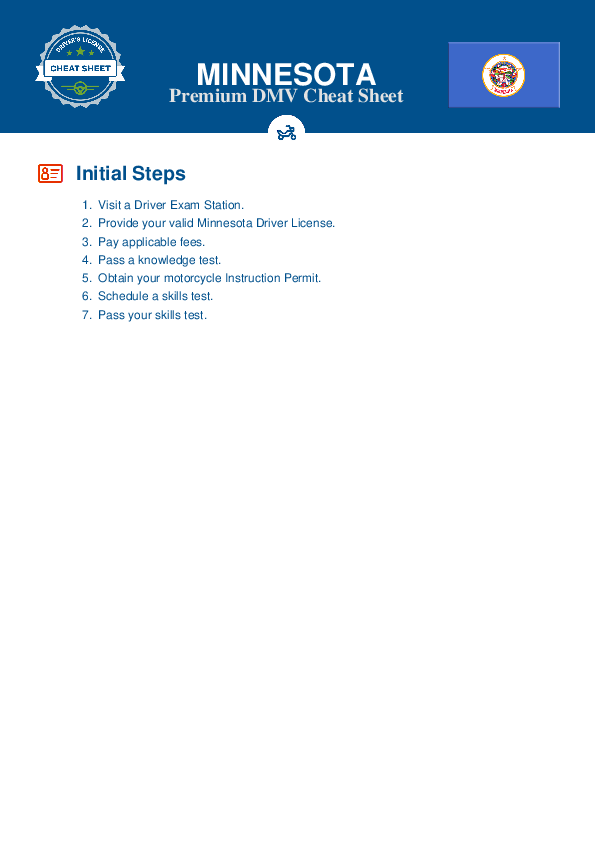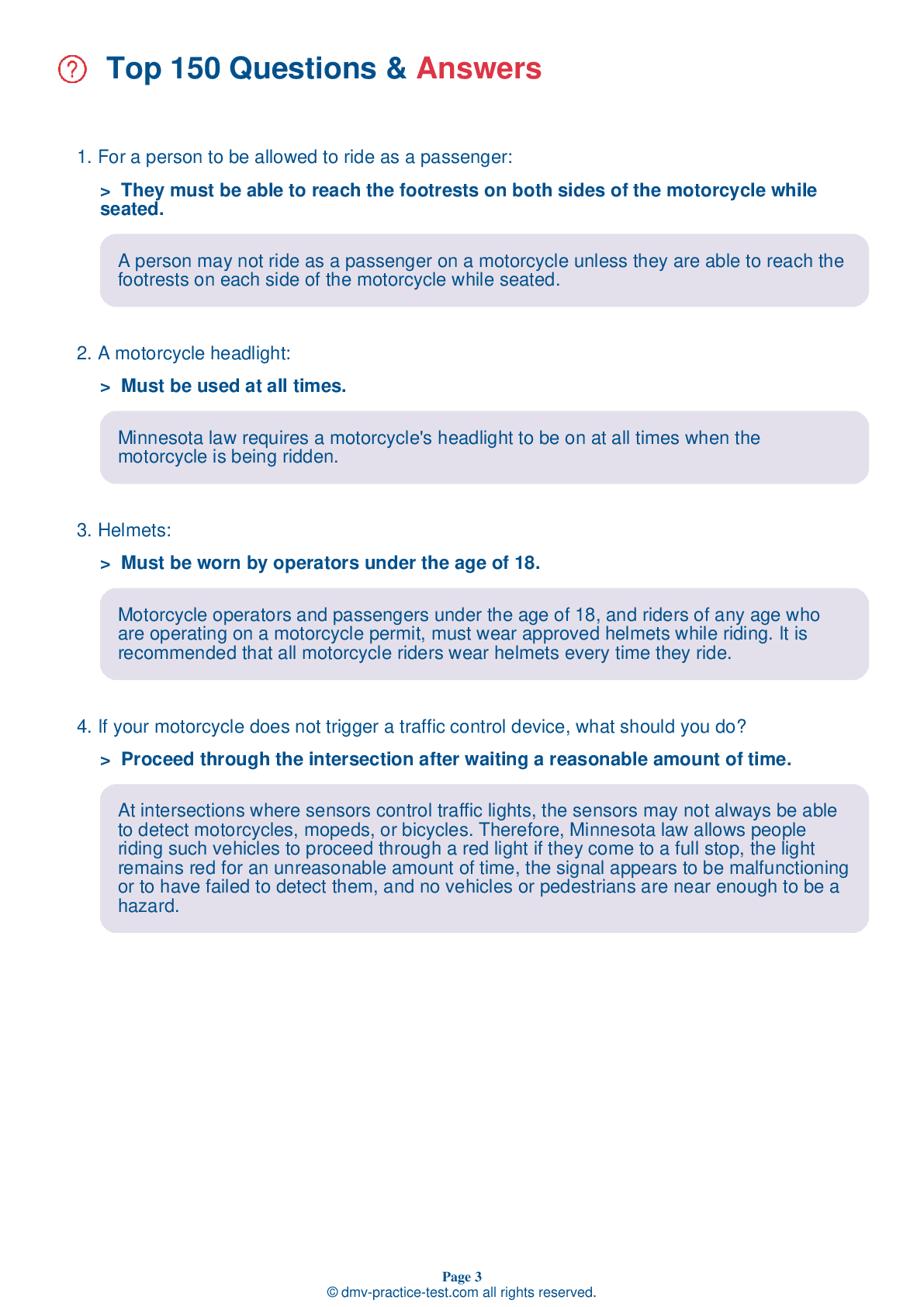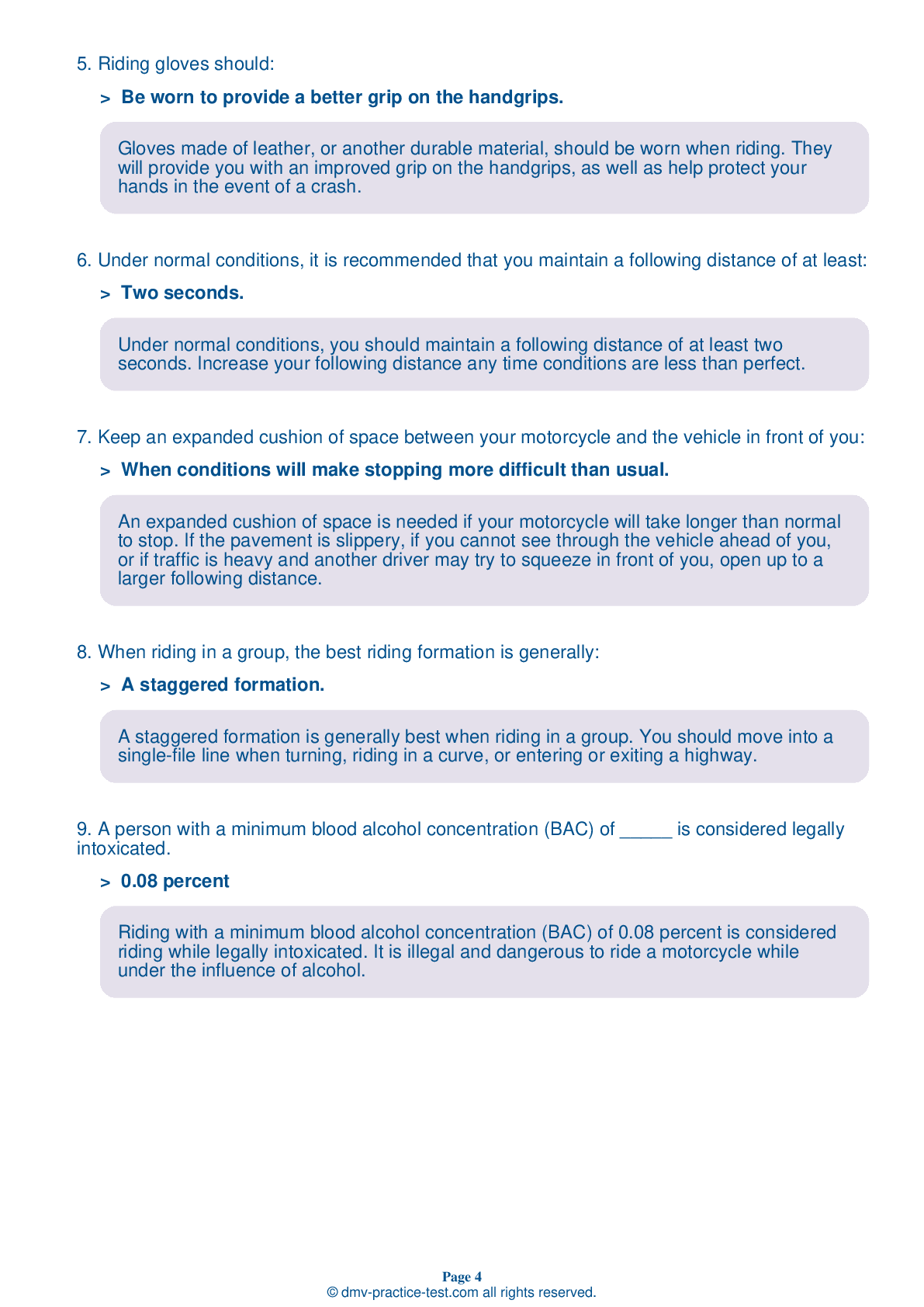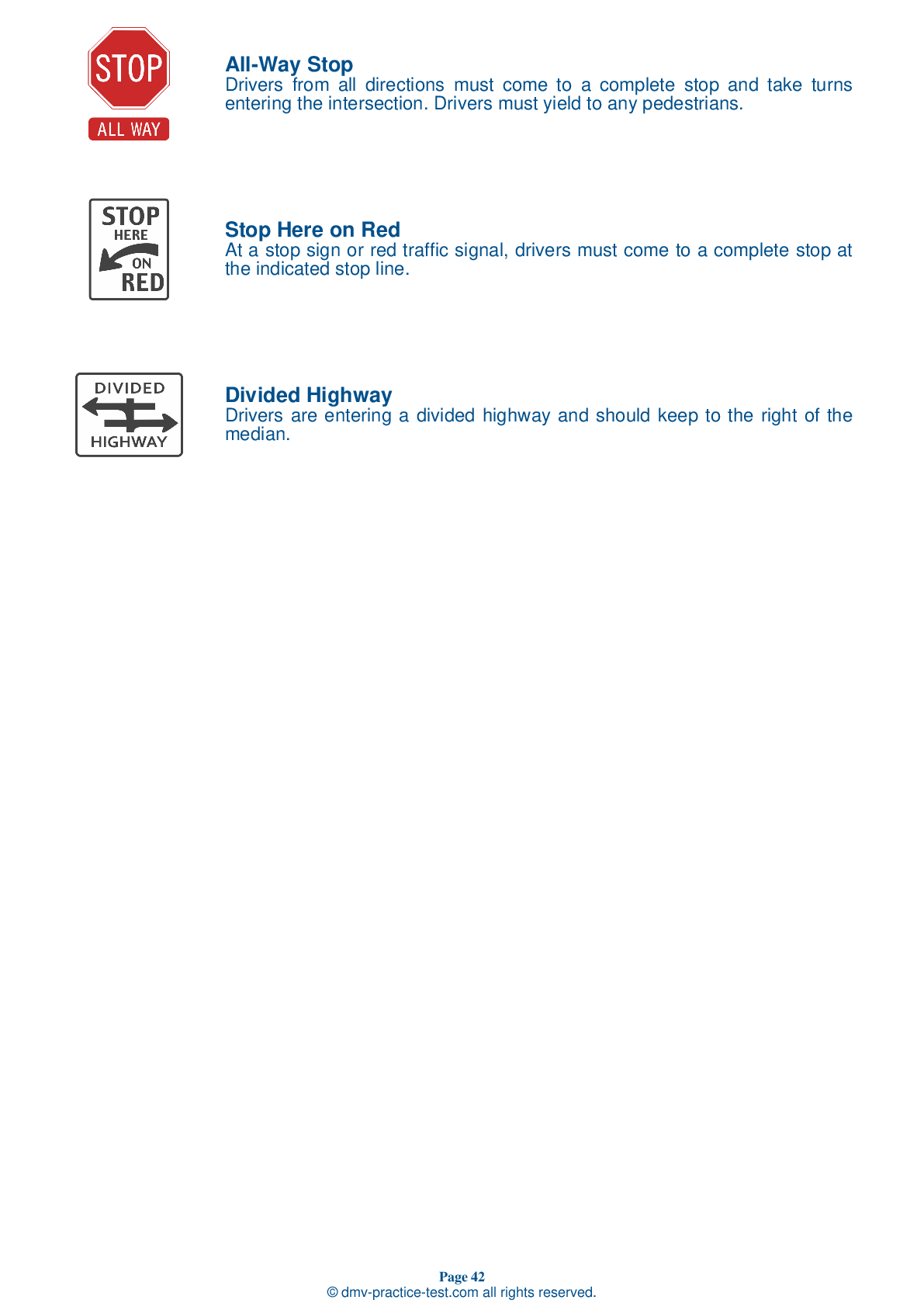Motorcycle Test | License MN 2026 | FREE Online Practice! #8 Page 5 of 5
Take this FREE motorcycle test (license in MN 2026) to check your knowledge of the road rules. To improve your results, download a motorcycle handbook online, study theory, and practice for free on our website. Still worried about how to get a motorcycle license in Minnesota in 2026? Check our website for more sample tests, train as much as possible, and boost your grades!
33 . This sign means:
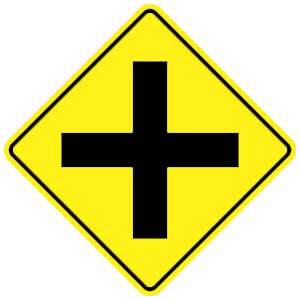
This sign warns of the presence of a crossroad ahead.
34 . In general, riders should:
Because road and traffic conditions are always changing, the safest lane position is also always changing. Choose the position that will maximize your space cushion and allow other drivers to see you most easily.
35 . When riding at night, a motorcyclist should:
Riding at night can be dangerous because a rider’s ability to see and be seen by fellow motor vehicle operators is limited. It is recommended that riders adjust their riding behavior to compensate for this limited visibility by reducing their speed, maximizing their headlight usage, and increasing their following distance.
36 . Before carrying a passenger in traffic for the first time, you should:
Before transporting a passenger or heavy load in traffic for the first time, practice riding on a quiet road to get used to how your motorcycle handles differently with the additional weight.
37 . Under normal conditions, it is recommended that you maintain a following distance of at least:
Under normal conditions, you should maintain a following distance of at least two seconds. Increase your following distance any time conditions are less than perfect.
38 . The front brake supplies how much of a motorcycle's stopping power?
The front brake of a motorcycle is more powerful than the rear brake. It can provide three-fourths of the bike's total stopping power.
39 . Riding on the far side of a lane when following another vehicle:
Most drivers do not look at their side mirrors as often as they look at their rearview mirror. Therefore, when following a car, it is generally best to ride in the center portion of the lane where you are most likely to be visible in the driver's rearview mirror.
40 . Motorcycle riders should choose footwear with soles that:
Choose riding boots or shoes that are high and sturdy enough to cover and support your ankles. Choose footwear with soles made of hard, durable, slip-resistant material.
See the exact questions that will be on the 2026 Minnesota DMV exam.
99.2% of people who use the cheat sheet pass the FIRST TIME
Jeneen was tired of paying $5/gallon. She got herself a scooter that required the motorcycle license. She studyed the motorcycle test cheat sheet and passed her test the next day!
Christopher tells us how he knew nothing prior to obtaining the motorcycle study guide, and he only got one question wrong because he clicked on the wrong answer by mistake.
